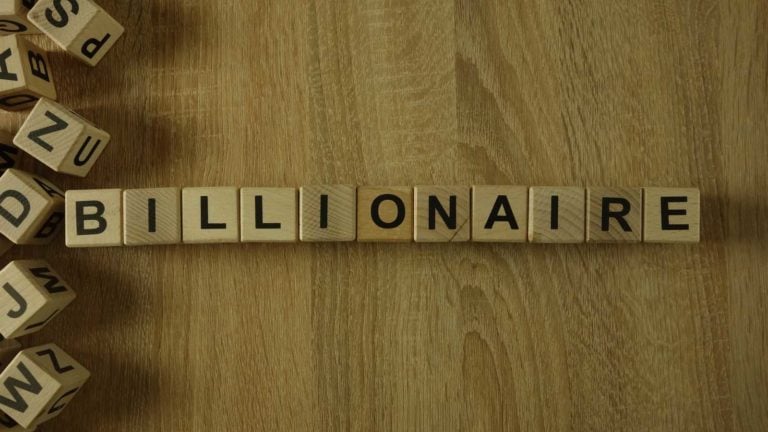Oxfam International published Survival of the Richest on Jan. 16, the opening day of the World Economic Forum in Davos, Switzerland. The report highlights the need for a billionaire’s tax.
“A tax of up to 5 percent on the world’s multi-millionaires and billionaires could raise $1.7 trillion a year, enough to lift 2 billion people out of poverty,” Oxfam writes.
In addition, Oxfam points out that since 2020, the world’s wealthiest 1% have reaped $42 trillion in new wealth, while the other 99% saw approximately half that amount. Based on a global population of 7.89 billion, the wealthiest 1% added more than $532,000, on average, in new wealth over the past two years compared to $2,688, on average, for the remaining 99%.
That’s a multiple of nearly 200. It’s not quite the disparity of the 2021 S&P 500 CEO pay ratio — which was 324-to-1, according to the AFL-CIO. But it’s glaring nonetheless.
Martin Luther King Jr. said it best when he noted: “Money in its proper place is a worthwhile and necessary instrument for a well-rounded life, but when it is projected to the status of a god it becomes a power that corrupts and an instrument of exploitation.”
Here are three reasons why a billionaire’s tax is a no-brainer.
Taxes Paid Are One of the Highest Forms of Service to Your Country
Once upon a time, it was considered a privilege to pay taxes.
Where I’m from in Toronto, there once lived a very wealthy man named John Angus “Bud” McDougald. He, along with three other wealthy Toronto financiers, created Argus Corp., a conglomerate that at one time controlled several of Canada’s most successful businesses.
In Peter C. Newman’s book, The Canadian Establishment, McDougald is quoted as saying, “I’m the only man in this room that’s paid personal income tax of more than a million dollars every year for the past sixteen years.”
Sure, McDougald was bragging. But he also recognized that it was a privilege to be in a position to be able to contribute to society in such a tangible way.
Do the billionaires of today feel this way? Some do. Most probably don’t.
Former bond king, Bill Gross, came out in October 2013 in support of higher taxes for the 1%: “Instead of approaching the tax reform argument from the standpoint of what an enormous percentage of the overall income taxes the top 1% pay, consider how much of the national income you’ve been privileged to make.”
Take a Pound of Flesh From Scammers

Oxfam’s report noted that Indian billionaire Gautam Adani — the seventh wealthiest person in the world according to the Bloomberg Billionaires Index — saw his wealth soar by 46% in 2022.
If the Indian government were to tax Adani’s unrealized capital gains for the five years between 2017 and 2021, it would raise nearly $22 billion, the report said, enough to hire 5 million primary school teachers in India for a single year.
Instead, if recent news is to be believed, Adani’s wealth is about to take a big haircut and, with it, a bigger contribution from a potential billionaire’s tax. According to Hindenburg Research, Adani has been running a massive stock manipulation and accounting fraud scheme for decades.
“The Adani Group has previously been the focus of 4 major government fraud investigations which have alleged money laundering, theft of taxpayer funds and corruption, totaling an estimated U.S. $17 billion,” states Hindenburg’s Jan. 24 press release.
This thing could unravel very quickly for Adani and, in the process, significantly damage India’s economy, while the country’s coffers get very little in return. At least if there were a billionaire’s tax, they would have gotten a pound of flesh from the alleged scammer.
A 70% Tax for High Earners Works

Nobel Prize-winning economist Joseph Stiglitz believes a worldwide income tax of 70% for the 1% would go a long way to reducing inequality.
“‘People at the top might work a little bit less if you tax them more. But on the other hand, our society gains in having a more egalitarian, cohesive society,’ the former World Bank chief economist, 79, told Oxfam’s Equals podcast,” The Guardian recently reported.
Stiglitz suggests that many billionaires inherited their wealth, doing little for society other than spending their fortunes on toys and experiences with their friends and family. Of course, I’m paraphrasing the economist’s words with a bit of sarcasm.
He suggests that Sen. Elizabeth Warren’s proposal to tax 2%-3% of the wealthy’s assets each year is “very reasonable” and “would really go a long way to raising revenues that could alleviate some of our country’s problems.”
I couldn’t agree more. But, again, it’s a privilege to pay taxes. We’re all in this together.
On the date of publication, Will Ashworth did not have (either directly or indirectly) any positions in the securities mentioned in this article. The opinions expressed in this article are those of the writer, subject to the InvestorPlace.com Publishing Guidelines.
